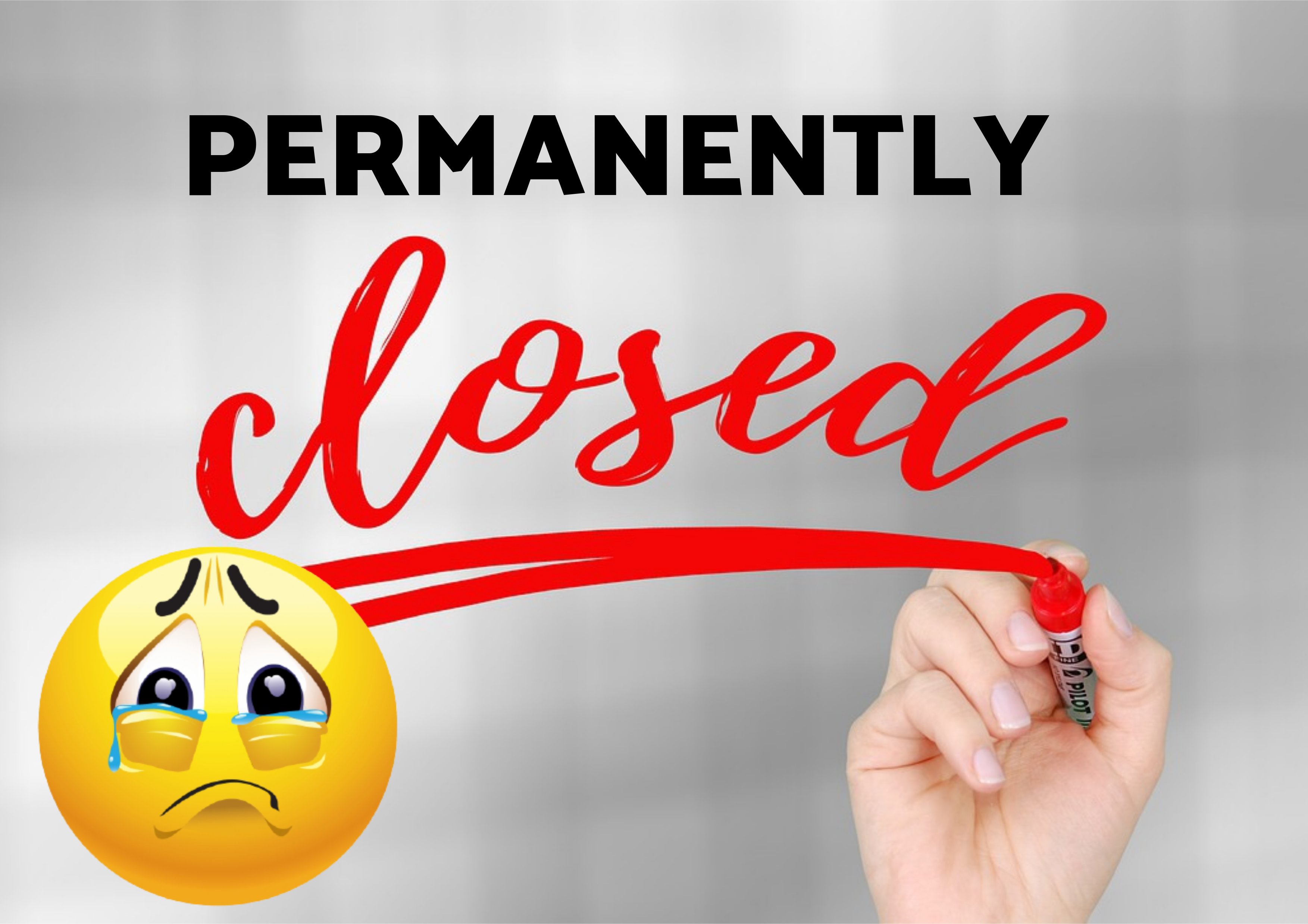This one is going to hurt your pride most, we know.
Though some MSMEs may be seeing the end of their venture, we must send some comfort their way – some doors close so that others may open. For some, this usually means the start of something new.
When the time comes to move on, Entrepreneurs ought to have an exit strategy, as properly...and gracefully closing things off legally and financially will improve your chances of transitioning smoothly into another venture. So how do Entrepreneurs know when it is time to shut the door and move on? It is indeed a difficult realization that most must come to. The end may also be inevitable, and it is just a matter of when. Here then, we find Entrepreneurs holding on with every last bit of hope, cash, and pride, as they slowly come to terms with what has to be done. We do not always have the ability to foresee the end or detect the time at which we need to move on.
Even successful Entrepreneurs can be faced with the decision to fold for one reason or the other. It must be noted that a failed business does not define an Entrepreneur. In this fast-paced, ever-changing, global digital era, adapting, pivoting, transitioning, and even evolving, can mean shutting a present business down to start a new project, perhaps using a different model, different tools, different principles, and different objectives so as to now cater to the changing shift in buyer decisions and consumer demands. Consequently, it is imperative that businesses are able to monitor and identify the signs that will indicate when the time has finally come, to shut the doors on a teetering venture.
Entrepreneurs must understand that closing a business isn’t just about packing up shop, selling out assets, closing your doors to the public, deleting social media pages, and cutting off communication with customers.
Related: Exit Strategy - How to Close Your Business the Right Way.
Closing your business entails ensuring that your business is primed for what comes after.
 No doubt, deciding to close your business is a personal judgment, and indeed a difficult one. We know that your business is a product combined with your determination, blood, sweat, and tears(literally), long nights, sleepless nights, frustrating days, sacrifice, and so much more. But knowing when to ‘hang up your hat’ will save you money and further financial and emotional stress. So, deliberating on whether this is the end or not, can be quite painful, and our aim here is not to ‘rough you up’ about your business and tell you to close up shop; rather, we wish to provide you with some considerations that can help with your decision-making through one of the hardest decisions you have to make.
No doubt, deciding to close your business is a personal judgment, and indeed a difficult one. We know that your business is a product combined with your determination, blood, sweat, and tears(literally), long nights, sleepless nights, frustrating days, sacrifice, and so much more. But knowing when to ‘hang up your hat’ will save you money and further financial and emotional stress. So, deliberating on whether this is the end or not, can be quite painful, and our aim here is not to ‘rough you up’ about your business and tell you to close up shop; rather, we wish to provide you with some considerations that can help with your decision-making through one of the hardest decisions you have to make.
Let’s have a look at some of these considerations (but you have to be honest with yourself).
- Where is your ‘why’ now? Do you find yourself struggling to wonder about why you put yourself out there, only to not make it? Do you question even your ‘why’? The same ‘why’ that was the reason for you starting this journey? If your response is ‘yes’ to either of these questions, then no doubt, fear, and uncertainty have reached dangerous levels in your mindset. If you begin to feel unsure about your ‘why’, it could mean that you have lost focus, passion, and the determination to push forward and succeed. It could also mean a whole lot of confusion in terms of your business' mission, vision, and objectives. If you are not clear on what you set out to do, you would feel overwhelmed, confused, out of sorts, distracted, and you may have just been going through the motions without any clear, real vision or achievable goals. If this is the case, then you would have been spending money on efforts that were futile and not bringing any business, but left you feeling unfulfilled. If you do not feel empowered to drive action into your business, then your team, and those around you, wouldn’t feel it either.
- Is your business stuck in a state of ‘dormancy’ for a prolonged period? No doubt, COVID-19 halted many business activities, but are you still stuck in early 2020? Then something is not right. There has been global dialogue on the FACT that businesses MUST ‘pivot’, ‘transition’, ‘adapt’, ‘change’, ‘evolve’, ‘re-boot'...if they are to survive and thrive this pandemic. So, in 2021, businesses should have a new strategy. We’ve had time to sit and wait to see if we’d get back to normalcy, or some bit of it at least. We’ve had time to see that ‘normal’ isn’t returning soon. And we’ve had time to see that many businesses have pivoted indeed... even our competitors. But are you still stuck?
- Do you dread getting into the office? Do you find yourself dodging calls? Are you just demotivated and don’t feel like getting anything done? You no longer enjoy the tasks you usually couldn’t wait to get up for. Sure, there are days like these in every Entrepreneur’s life, but if you have been stuck in a rut for too long and you’re struggling to crawl your way out, it could be that you’re just done for- emotionally, mentally, and physically. Your health may have been affected and you’ve probably pushed yourself to extreme limits. Think carefully about how you really feel and decide if you just need rest, or if you need to get away from your business. If working in, and on your business feels more like a routine chore, then you may consider packing up.
- How has your cash flow been for the last two-three years – pre COVID? Were you making profits...or any money at all before the global pandemic hit? Take your company’s financial temperature. If you’re struggling to meet your financial obligations, heavily indebted, and using personal funds to cover most business expenses, then the business isn’t ok. If money was not flowing for a long period before the pandemic, then it certainly is time to take a reality check into your business processes and see it for what it is, especially now that money is flowing a lot less overall. Financial loss can be devastating if you wait too long to act, and this could end up hurting even your family and your health.
While these are some indicators that your business may be heading downhill, remember what we said earlier, “...a failed business does not define an Entrepreneur.”
If you do decide to close the doors on your business, do not look back with regrets. Accept that you needed to walk this journey so that you could be taught the lessons you needed to learn.
Accept that you’ve learned a lot of great lessons throughout — and push through even this.
As one of our Business Development Officers says, “See this as a temporary short-term setback, on a long-term business journey.”



